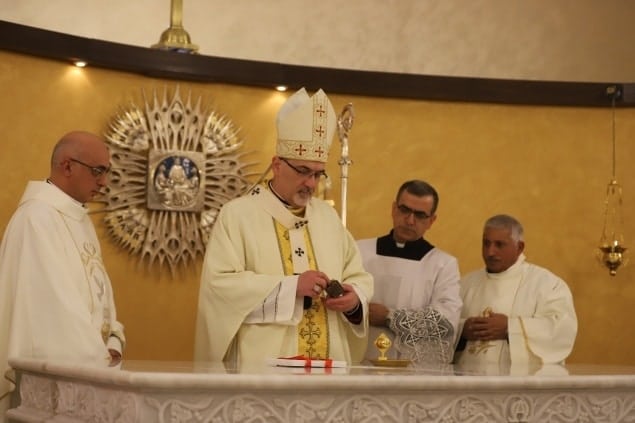Immersed in the Week of Christian Unity, held every year from January 18-25, the Latin Patriarch of Jerusalem, Pierbattista Pizzaballa, speaking on ecumenism in the Holy Land, said “We want to be together.”
The Patriarch, who is on a pastoral visit to Jordan, referred to the “desire of the Christian population to live in peace, agreement and good relations,” to “live together.” For Monsignor Pizzaballa, “the Holy Land and Jerusalem are a laboratory of ecumenism, which is a lived reality in the flesh of our faithful, of our Christian families that, in 90% of cases, are mixed, Catholic and Orthodox. To live together ‘obliges’ us to count on the other, continually, every day,” he added.
“We Want to Be Together”
For the ecclesial representative, the relationship between Christians in this area can’t be limited to “the images of tension in the Holy Sepulcher between the different Confessions, which are broadcast every now and then on television, because they don’t talk about the Holy Land’s ecumenical reality that, instead, lives the desire for the unity of local Christians.” “As parish priest of this Church, I can say that it’s a request made forcefully. Wherever I go, in schools, churches, parishes, I hear this wish: ‘we want to celebrate together, we want to be together, we want to see you together,’” he said.
According to the Patriarch, “there is a certain difficulty on the part of the people in regard to ecclesiastical institutions, which are somewhat more rigid. The history, liturgical, juridical, and ecclesiastical questions weigh a lot and, for the majority of the faithful, they are incomprehensible. Christians here want to be together, pray together, and live as one community.”
The pressure from below continues. It “pushes the institutions – including the most refractory, such as the Greek Orthodox, to commit themselves. Although in the liturgical and ecclesial aspect unity requires a bit more time, “social unity is already a fact,” he stressed.
He also said that “as Churches, we are all aware that, beyond some differences, we must speak with one voice, from the political and social point of view, on the situation in general. This has become manifest especially in the last years, as demonstrated by a series of Joint Statements on different local events. And we try to do so almost always. The most recent statement goes back to December 15, when the Patriarchs and Leaders of Jerusalem’s Churches lamented that ‘Christians have become the object of the attacks of radical Jews.’”
Ecumenism and Martyrdom
According to the same source, the leader of the Latin Patriarchate of Jerusalem also addressed the question of ecumenism and martyrdom: “There is an evident martyrdom that we have seen in Iraq, in Syria and in other countries of the Middle East — the situation in the Holy Land is different — and it does not distinguish between the different Churches.”
“To belong to Christ makes us the same among ourselves in face of persecutors. There is also a martyrdom of another kind, that of being a small number in a Jewish and Islamic ‘sea,’ depending on the place. This always obliges us to realize what we are, and this also unites us among Christians .”
It is a “continuous challenge,” repeated Patriarch Pizzaballa, “that has something to teach us, Westerners, also, who want to see the result of our actions immediately. However, here in Jerusalem, we learn to live and to give content and meaning to our waiting. We must wait for others’ times, which are never ours. The ecumenical dialogue must take this aspect into account, which cannot be separated from listening.”
Synod
Finally, in regard to the Synod, he said that “a propitious time awaits us for listening, and it’s that of the synodal path.” In addition, he announced the imminent publication, foreseen for the Week of Prayer for Christian Unity (in the Holy Land on January 22), of a letter addressed to all the leaders of Jerusalem’s Churches.
“I will inform them of the Synod in the latter, where one of the central themes will be listening. We will be delighted, not only to inform you but also to hear your opinion on the subject of synodality. The Orthodox Churches have much experience in this,” he concluded.
Translation by Virginia M. Forrester










